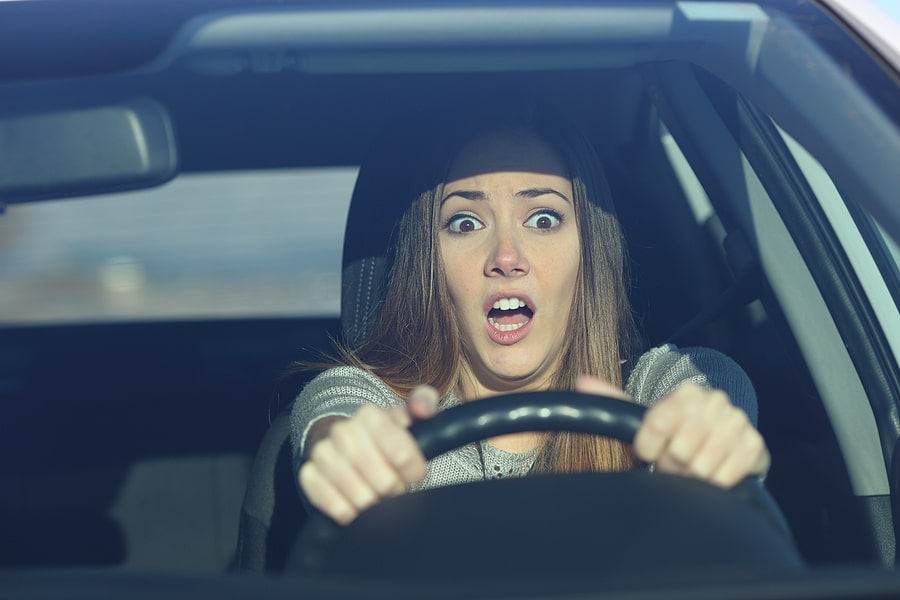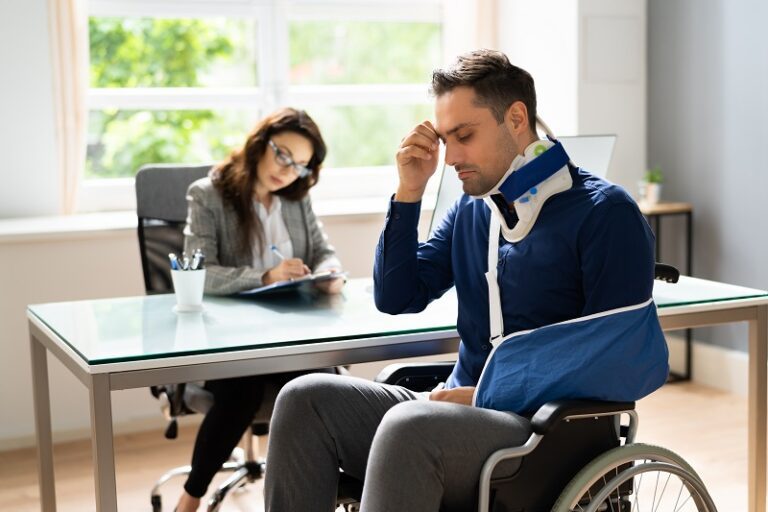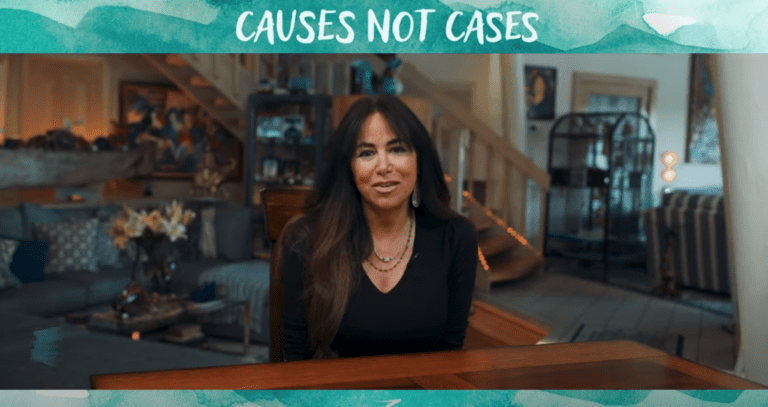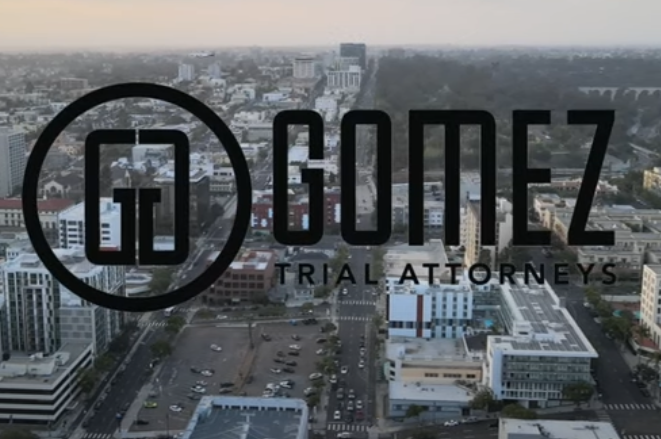
Determining who caused a motor vehicle accident isn’t always easy, especially when a crash involves one vehicle pulling out in front of another.
If you suffered injuries in that type of accident, you probably want to know if you are at fault and, if not, how you can get paid for the harm you suffered. Below we walk you through some of the considerations, and explain how working with an experienced motor vehicle accident injury lawyer can protect your rights and get you the compensation you deserve for your injuries.
[lwptoc]
The Factors Used to Determine Fault in an Accident in Which One Driver Pulls out in Front of Another
Numerous factors can come into play when determining who caused a motor vehicle accident. Here are some common questions attorneys, insurance adjusters, and law enforcement may ask to help them in their determination.
#1. Who had the right of way?
All road users must yield the right-of-way to others in certain circumstances. Traffic codes in every state define who has the right-of-way in any given driving situation. Generally speaking, the driver who must yield the right-of-way bears the blame for an accident resulting from a failure to do so.
Evaluating who had the right of way is especially useful in determining fault in accidents that happen at intersections, or when a vehicle pulls out of a private driveway or parking lot, where the rules for yielding the right of way are clear and well-established. A driver who violates right-of-way rules at one of these locations will generally have fault, and legal liability, for causing the accident.
#2. How fast was each vehicle traveling?
Speed increases make it difficult to judge a gap in traffic because they decrease the amount of time the driver has to perceive a hazard and react to it. Speed increases also extend the distance needed to bring a vehicle to a complete stop.
In assessing fault for an accident in which one vehicle pulls out in front of another, you may need a lawyer to investigate and determine the relative speeds of the two vehicles. Did one vehicle pull out into traffic from a standing stop, or did the vehicle speed across a travel lane? Was the vehicle in the travel lane observing the speed limit or driving at a safe speed for road conditions, or was that vehicle speeding and giving itself insufficient time to stop for crossing traffic?
Often, a vehicle that was violating a speed-related traffic rule at the time of an accident involving one vehicle pulling out in front of another bears at least some of the fault.
#3. Was the accident reasonably foreseeable and preventable?
Not all accidents can be predicted or avoided. Sometimes, unexpected hazards crop up, depriving drivers of any reasonable opportunity to see and react.
In evaluating fault in a crash involving one vehicle pulling out in front of another, lawyers and investigators will seek to weigh the possibility that the accident was simply unforeseeable and unavoidable for one, or potentially both, drivers. Generally speaking, a driver should not blame themselves for an accident if it was impossible to predict or prevent through reasonable actions behind the wheel.
#4. Was each vehicle in safe driving condition?
Some accidents happen because of mechanical or electrical defects in the vehicles involved. These defects can arise when manufacturing automotive parts, or they can develop over time through deficient or improper maintenance. For example, a crash involving a vehicle pulling out in front of another could occur because one of the vehicles had defective brakes or bald tires.
The fault may lie with the driver of a defective vehicle in an accident in which one driver pulls out in front of another if that defect contributed to the cause of the accident and the driver knew (or reasonably should have known) about the defect. But if the defect was neither obvious nor reasonably knowable, the fault may instead lie with the manufacturer of the defective part, or with a mechanic who performed deficient maintenance on it.
Why Fault Matters in Car Accident Cases
The concept of fault matters in car accident cases because it allocates financial responsibility for a crash among the parties involved. The role fault plays depends, in part, on the insurance laws of the state where the accident occurs.
In most states (including California), fault plays a central role in virtually every car accident case. That’s because insurance laws in those states follow a tort liability model, in which all drivers must carry a minimum amount of auto accident liability insurance coverage. A driver deemed at fault for an accident will generally owe damages to individuals injured or harmed by that accident. The at-fault driver’s liability insurance will typically pay those damages.
In a minority of states, auto insurance laws follow a no-fault model, which reduces—but does not necessarily eliminate—the role played by fault in car accident cases.
In these no-fault states, all drivers must carry personal injury protection (PIP) insurance that serves as their primary source of coverage for injuries they suffer in an accident, regardless of who bears the fault for the accident. Fault only comes into the picture in those states when someone suffers injuries or losses serious enough to meet a minimum threshold, at which point the at-fault party may have a legal obligation to pay damages not covered by the injured party’s PIP coverage.
In some states, PIP insurance is optional, and in others, it’s not even available. In those cases, you might purchase optional no-fault MedPay coverage, which covers some, but not all, of the same things—typically just medical expenses.
Under either auto insurance model, the type of compensation a car accident victim may receive from an at-fault party can include:
- Economic damages, such as medical expenses, lost wages, the loss of future earning capacity, and property damage you incurred as a result of the accident;
- Non-economic damages, such as physical pain and suffering, emotional distress, loss of consortium, and loss of the enjoyment of life; and
- Sometimes, punitive damages to punish the at-fault party for extreme or intentional misconduct.
How do lawyers use fault in proving a car accident case?
In a car accident case involving a vehicle pulling out in front of you, your lawyer may use the concept of fault to prove that someone else owes you compensation for your injuries and losses.
Typically, your lawyer must gather and present evidence and legal arguments sufficient to prove:
- The at-fault party owed you a duty of care to protect your health and property by driving safely and legally.
- The at-fault party breached that duty of care by pulling out in front of you. This breach could involve failure to yield, a poorly maintained vehicle, or other issues that are contrary to the act of driving safely and legally.
- This breach caused an accident in which you suffered injuries and financial losses.
Types of Accidents That Result From One Driver Pulling Out in Front of Another
Various types of accidents may result from a vehicle pulling out in front of you. Here are some common crashes and how they may affect you.
#1. Broadside (T-bone) Collisions
Broadside accidents occur when the front of one vehicle makes contact with the side of another. This type of accident can occur when a driver fails to yield the right-of-way at an intersection and pulls into the path of an oncoming vehicle.
Broadside accidents present the most danger to the occupants sitting on the side of the vehicle that absorbed the impact of the collision. The sides of vehicles offer less protection from a crash than the front or rear. Side curtain airbags can reduce the potential danger of T-bone collisions, but they can’t eliminate it, and many older vehicles do not have this safety feature.
This is, perhaps, the most difficult scenario for determining who is at fault, because it depends on a full assessment of the factors listed above to decide which of the two drivers (if either of them) violated safe driving practices.
#2. Rear-end Accidents
Rear-end accidents occur when the front of one vehicle collides with the rear of another. A vehicle that pulls out unexpectedly into a travel lane can easily trigger a rear-end collision between two vehicles in that lane. A driver may slam on the brakes to avoid T-boning the vehicle that pulls out in front, only to get rear-ended by a vehicle behind him.
In this scenario, the driver who pulls out in front of the first vehicle, or potentially the driver who rear-ends the first vehicle, often bears fault for the accident.
#3. Head-on Collisions
Head-on collisions can occur when a vehicle pulls out in front of another, in several ways. The vehicle that pulls out may mistakenly turn into the path of oncoming traffic, for example. Or, a driver may swerve to avoid a vehicle pulling out in front of her, only to drive into an oncoming traffic lane and collide with another vehicle.
In this situation, the driver who pulls out into traffic will likely deserve at least some of the fault for the crash.
#4. Rollover Accidents
If someone pulls out in front of you and you take quick evasive action by swerving to avoid a collision, you may end up rolling your vehicle. This is a particular danger for drivers of SUVs and other cars and trucks with high centers of gravity and relatively narrow wheelbases.
This scenario often results in the driver who pulled out in front of you taking most of the blame for what happened.
#5. Left-turn Accidents
This is a species of pull-out-in-front accidents that commonly happens in intersections and turning lanes, and pose a particular risk to motorcyclists. In this scenario, a driver turning left across a lane of oncoming traffic fails to yield the right-of-way to an oncoming vehicle, triggering a collision (usually, a T-bone).
The driver who turns left without yielding the right-of-way typically deserves the fault for this accident, even if the driver made a simple misjudgment. In fact, research suggests that many of these accidents result from a phenomenon known as inattentional blindness, in which drivers see, but do not mentally register the presence of, oncoming vehicles, and turn straight into their paths.
If You’re in an Accident Involving Someone Pulling out in Front of You…
If you get into an accident caused by someone pulling in front of you:
- Remain on the accident scene until police arrive.
- Exchange any required information with the other driver.
- Take pictures or video of the scene with your cell phone, if it’s possible to do so safely and without getting in the way of first responders.
- Get names and contact information from any accident witnesses and any police officer who responds to the scene.
- Seek medical attention, even if you do not think you suffered serious (or any) injuries. In the stress of the aftermath of a crash, you cannot trust yourself to know if you’re hurt. Let a doctor decide.
- Notify your insurance provider that the accident occurred.
- Contact an experienced car accident attorney as soon as possible.
By the same token, do not:
- Say anything laying blame for the accident while you’re at the scene.
- Speak with any representative of the other driver’s liability insurance company.
- Say anything to anyone that suggests, even indirectly, that you deserve any of the blame for what happened.
- Post information about the accident on social media.
- Agree to release your medical records without speaking to an attorney first.
Seek Experienced Legal Help Right Away
If you suffered injuries and losses in an accident in which someone pulled out in front of you, you may have the right to significant financial compensation to pay for your care and get back to living your life.
Contact a skilled car accident attorney as soon as possible after your accident for a free case consultation.







